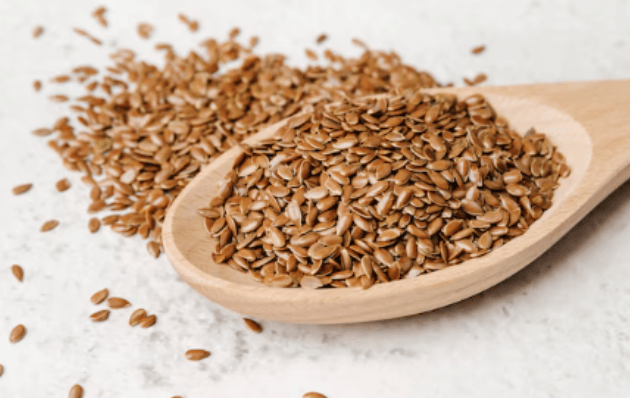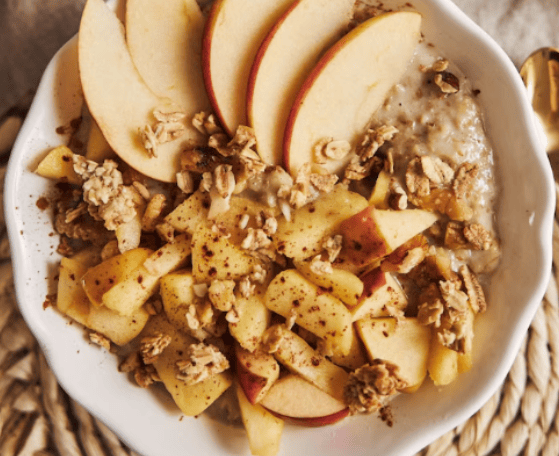Heart disease continues to be one of the leading causes of death worldwide, but small changes in your daily routine—like what you put on your plate—can make a big difference. One of the most powerful and underrated tools for protecting your heart is dietary fiber, especially the soluble kind found in certain plant-based foods.
Soluble fiber helps reduce levels of LDL (bad) cholesterol by binding to it in the digestive tract and escorting it out of the body. But the benefits don’t stop there. A high-fiber diet also supports healthy blood pressure, stable blood sugar, and even weight management—all key factors in long-term cardiovascular health.
If you’re looking to strengthen your heart through food, this article is for you. We’re highlighting five of the best fiber foods for heart health—nutrient-rich, accessible, and easy to enjoy every day. From whole grains to fruits and legumes, these heart-healthy high fiber foods are as delicious as they are effective.
Let’s take a closer look at how these fiber-filled favorites can support your journey toward better heart health.
Why Fiber Matters for Heart Health
When it comes to protecting your heart, dietary fiber plays a much bigger role than many people realize. In particular, soluble fiber—the kind found in oats, beans, fruits, and certain seeds—has been shown to lower LDL (bad) cholesterol by binding to it in the digestive tract and helping the body eliminate it. Lower LDL levels mean less buildup of plaque in your arteries, which reduces the risk of heart attack and stroke.
But the benefits of fiber go beyond cholesterol. A high-fiber diet can also help regulate blood pressure, thanks to its effects on insulin sensitivity, weight control, and vascular health. Soluble fiber has been associated with reduced inflammation, which is another major contributor to cardiovascular disease.
Multiple large-scale studies have confirmed that people who eat more fiber-rich foods have a lower risk of heart disease and stroke. In fact, the American Heart Association recommends getting 25–30 grams of fiber per day, with a focus on foods that are naturally rich in soluble fiber.
In short, the connection between fiber and cardiovascular health is clear and well-supported by science. By making fiber a daily priority, you’re giving your heart a natural and effective layer of protection.
5 Best Fiber Foods for Heart Health
If you’re aiming to protect your heart naturally, adding more fiber-rich heart healthy foods to your meals is one of the smartest moves you can make. Specifically, soluble fiber foods for cholesterol reduction can help lower LDL (“bad”) cholesterol levels, improve blood pressure, and even reduce inflammation—key factors in preventing heart disease.
Let’s take a look at five of the most powerful high-fiber foods for heart health, supported by both tradition and science.
1. Oats
Oats are one of the most well-known soluble fiber foods for cholesterol control. They contain beta-glucan, a type of fiber that binds to cholesterol in the digestive tract and helps remove it from the body.
A review published in Foods (2021) found that beta-glucan from oats consistently lowers LDL cholesterol by 5–10% when consumed daily in amounts of 3 grams or more. That’s about the amount in 1.5 cups of cooked oatmeal.
How to eat them:
- Start your day with oatmeal topped with berries and nuts.
- Make overnight oats with almond milk and chia seeds.
- Add oat flour to smoothies or healthy baked goods.
2. Beans (Black, Kidney, Navy, and More)
Beans are nutritional powerhouses—rich in both soluble and insoluble fiber, as well as plant-based protein, potassium, and magnesium. A single cup of cooked beans can deliver up to 15 grams of fiber.
Research from the Canadian Medical Association Journal (2014) shows that one daily serving (about ¾ cup) of legumes like beans can lower LDL cholesterol by 5%, while also improving blood sugar control and reducing systolic blood pressure.
How to enjoy them:
- Add to soups, stews, and chili.
- Toss into salads and whole grain bowls.
- Blend into hummus or bean dips for a heart-smart snack.
3. Apples
An easy, everyday option, apples are rich in pectin, a type of soluble fiber that contributes to lower cholesterol and improved digestive health. They also contain polyphenols, plant compounds with strong antioxidant and anti-inflammatory properties.
A 2020 study published in The American Journal of Clinical Nutrition found that eating two apples per day for eight weeks significantly lowered LDL cholesterol and improved endothelial function—key for heart health.
Ways to enjoy apples:
- Eat raw as a convenient snack.
- Slice over salads or morning oatmeal.
- Bake with cinnamon for a naturally sweet, fiber-rich treat.
4. Barley
Often overlooked, barley is another fantastic source of beta-glucan, similar to oats. It’s been shown to reduce LDL cholesterol, improve insulin sensitivity, and promote fullness—all of which support a healthy heart.
A meta-analysis in European Journal of Clinical Nutrition (2016) concluded that barley beta-glucan significantly reduces both total and LDL cholesterol levels when consumed regularly.
Heart-smart ways to eat barley:
- Add to soups and vegetable stews for a hearty texture.
- Mix into grain bowls with roasted veggies.
- Use in place of white rice or pasta in side dishes.
Choose hulled barley (minimally processed) for the highest fiber content.
5. Flaxseeds

Tiny but mighty, flaxseeds are a unique superfood packed with soluble fiber, insoluble fiber, and plant-based omega-3 fatty acids (ALA)—a combination that supports cholesterol management and reduces inflammation.
A systematic review in Nutrition Reviews highlighted that regular flaxseed consumption (around 30 grams/day) may significantly lower LDL cholesterol, particularly in people with high cholesterol or hypertension.
Tips for adding flaxseeds:
- Sprinkle ground flax on oatmeal, yogurt, or smoothie bowls.
- Mix into homemade energy bites or baked goods.
- Stir into soups or sauces as a fiber boost.
Note: Always use ground flaxseed for better nutrient absorption.
Incorporating these fiber-rich heart healthy foods into your routine is a simple, sustainable way to improve cardiovascular health. From oats and beans to apples, barley, and flaxseeds, each offers a unique nutritional profile that supports lower cholesterol, better blood pressure control, and overall well-being.
Easy Ways to Add Fiber to Your Diet
Increasing your fiber intake doesn’t have to be complicated or time-consuming. With just a few smart tweaks to your daily routine, you can boost your fiber levels and support a more heart-healthy diet without sacrificing taste or convenience.
Start your morning strong by adding oats or fresh berries to breakfast. Oatmeal topped with raspberries or blueberries delivers a hearty dose of soluble fiber, which helps lower cholesterol. Prefer something faster? Try overnight oats or sprinkle chia and flaxseeds into a smoothie.
Next, incorporate more legumes like beans or lentils into lunch and dinner. They’re perfect in soups, salads, stews, or grain bowls, offering both soluble and insoluble fiber to support digestion and heart health.
Another simple trick: use ground flaxseed in baking or as a topping. Stir it into yogurt, mix it into muffin batter, or blend it into your morning shake.
Also, don’t overlook the basics—choose whole grains like brown rice, barley, or quinoa instead of white rice or refined pasta. And whenever possible, eat vegetables and fruits with their skins intact for maximum fiber.
By making these small changes, you’ll not only improve your fiber intake but also take meaningful steps toward a stronger heart and better overall health.
FAQs: Fiber and Heart Health
How much fiber is ideal for heart health?
For most adults, the recommended daily intake of fiber is 25 to 30 grams, with at least 5 to 10 grams coming from soluble fiber. Eating a variety of fiber foods for heart health—like oats, legumes, fruits, and whole grains—can help you meet this target while supporting lower cholesterol and better blood pressure.
Are fiber supplements effective for the heart?
Yes—certain supplements, such as psyllium husk, have been shown to help lower LDL (“bad”) cholesterol. However, supplements should be used as a complement to a high-fiber diet, not a replacement. Whole foods offer additional nutrients, antioxidants, and fiber types that supplements can’t fully replicate.
Can too much fiber be harmful?
It’s possible, especially if you increase fiber intake too quickly or don’t drink enough fluids. Common side effects may include bloating, gas, or constipation. To avoid this, gradually increase your fiber over time and stay well-hydrated.
What’s the difference between soluble and insoluble fiber?
- Soluble fiber dissolves in water to form a gel-like substance. It helps lower cholesterol and control blood sugar. You’ll find it in foods like oats, apples, beans, and flaxseeds.
- Insoluble fiber doesn’t dissolve in water and helps promote regular bowel movements. It’s found in foods like whole grains, vegetables, and fruit skins.
Both types are essential for optimal digestion and cardiovascular support, making them cornerstones of any heart-healthy diet.
Conclusion: Let Fiber Work for Your Heart
When it comes to protecting your heart, few things are as simple—or as powerful—as eating more fiber. A fiber-rich diet not only lowers bad cholesterol but also supports healthy blood pressure, blood sugar control, and overall cardiovascular wellness.
The good news? The best fiber foods for heart health—like oats, beans, apples, barley, and flaxseeds—are affordable, widely available, and easy to add to your daily routine. Whether you blend them into smoothies, stir them into soups, or sprinkle them over breakfast, small changes can lead to lasting heart benefits.
So start where you are. Make one fiber-friendly swap today. Your body—and your heart—will thank you for it.
